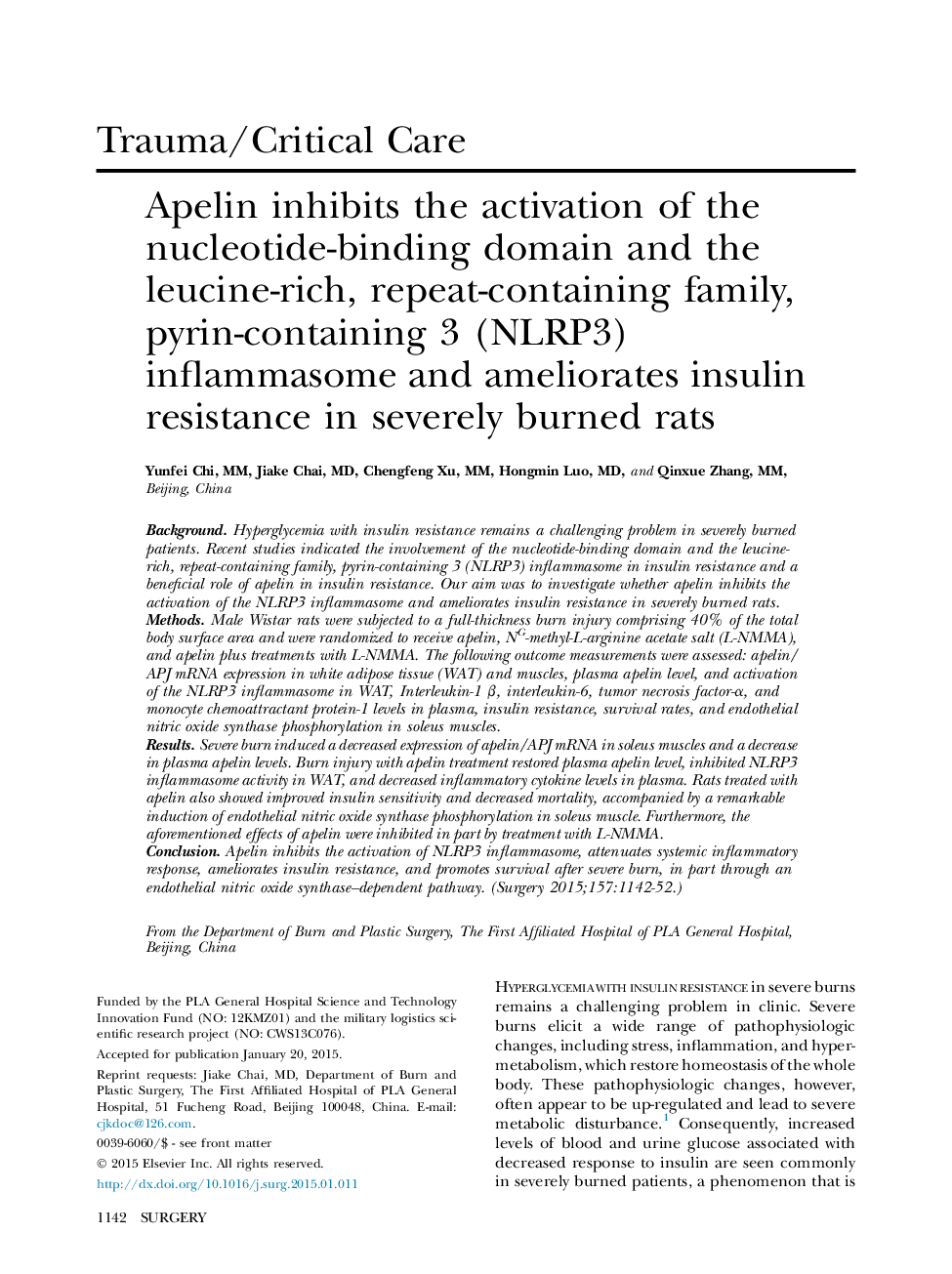| Article ID | Journal | Published Year | Pages | File Type |
|---|---|---|---|---|
| 6255171 | Surgery | 2015 | 11 Pages |
BackgroundHyperglycemia with insulin resistance remains a challenging problem in severely burned patients. Recent studies indicated the involvement of the nucleotide-binding domain and the leucine-rich, repeat-containing family, pyrin-containing 3 (NLRP3) inflammasome in insulin resistance and a beneficial role of apelin in insulin resistance. Our aim was to investigate whether apelin inhibits the activation of the NLRP3 inflammasome and ameliorates insulin resistance in severely burned rats.MethodsMale Wistar rats were subjected to a full-thickness burn injury comprising 40% of the total body surface area and were randomized to receive apelin, NG-methyl-L-arginine acetate salt (L-NMMA), and apelin plus treatments with L-NMMA. The following outcome measurements were assessed: apelin/APJ mRNA expression in white adipose tissue (WAT) and muscles, plasma apelin level, and activation of the NLRP3 inflammasome in WAT, Interleukin-1 β, interleukin-6, tumor necrosis factor-α, and monocyte chemoattractant protein-1 levels in plasma, insulin resistance, survival rates, and endothelial nitric oxide synthase phosphorylation in soleus muscles.ResultsSevere burn induced a decreased expression of apelin/APJ mRNA in soleus muscles and a decrease in plasma apelin levels. Burn injury with apelin treatment restored plasma apelin level, inhibited NLRP3 inflammasome activity in WAT, and decreased inflammatory cytokine levels in plasma. Rats treated with apelin also showed improved insulin sensitivity and decreased mortality, accompanied by a remarkable induction of endothelial nitric oxide synthase phosphorylation in soleus muscle. Furthermore, the aforementioned effects of apelin were inhibited in part by treatment with L-NMMA.ConclusionApelin inhibits the activation of NLRP3 inflammasome, attenuates systemic inflammatory response, ameliorates insulin resistance, and promotes survival after severe burn, in part through an endothelial nitric oxide synthase-dependent pathway.
